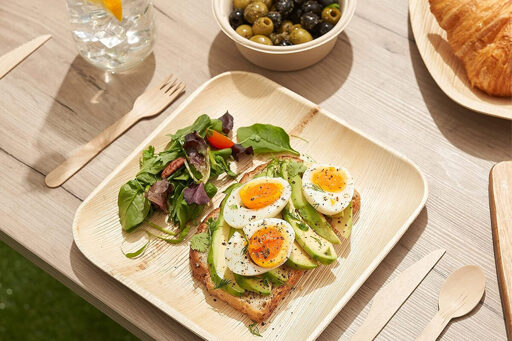In Bangladesh, disposable tableware, including plates made of areca palm leaves, is gaining popularity as a good alternative to single-use plastic during social gatherings and festival celebrations, Mongabay’s Abu Siddique reported in May. A survey from 2018 estimates that Bangladesh used around 250 metric tons of single-use plastic tableware and straws every month. However, since the first areca palm leaf tableware producer, Bright Areca, set up business in the country in 2017, the industry has grown to about 10 local companies producing biodegradable tableware. The industry is fairly new, though, and areca palm leaf plates are still far from fully replacing single-use plastic ones. Imran Hossain, a partner of Bright Areca, the largest company in the space, told Siddique he estimates the industry produces around 500,000 plates a month. “My company produces about 100,000 plates in a month based on demand,” he said. Bright Areca was inspired from businesses in India that have produced tableware from areca palm leaves at large scale since 2012, Siddique reported. Md Kamal, director of another major areca palm tableware producer, Ecovalley, said the company produces roughly 60,000 plates per month. “We started the production in 2021 with a monthly demand of around 20,000 pieces of plates. In four years, the production [increased] threefold,” he said. The raw material is widely available: areca palm trees (Areca catechu) are common in Bangladesh’s coastal areas, and fruit is commonly consumed in South and Southeast Asia, where it’s used in betel chewing. While the companies in Bangladesh largely…This article was originally published on Mongabay
From Conservation news via this RSS feed


